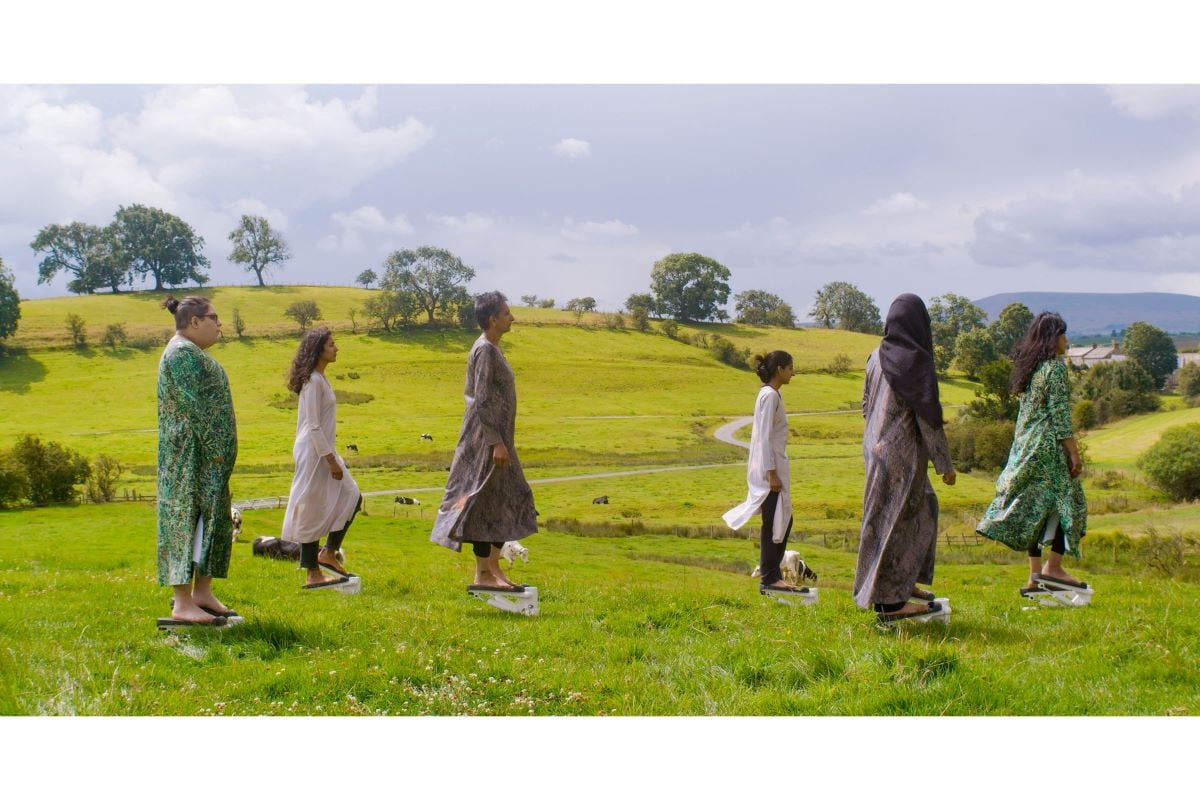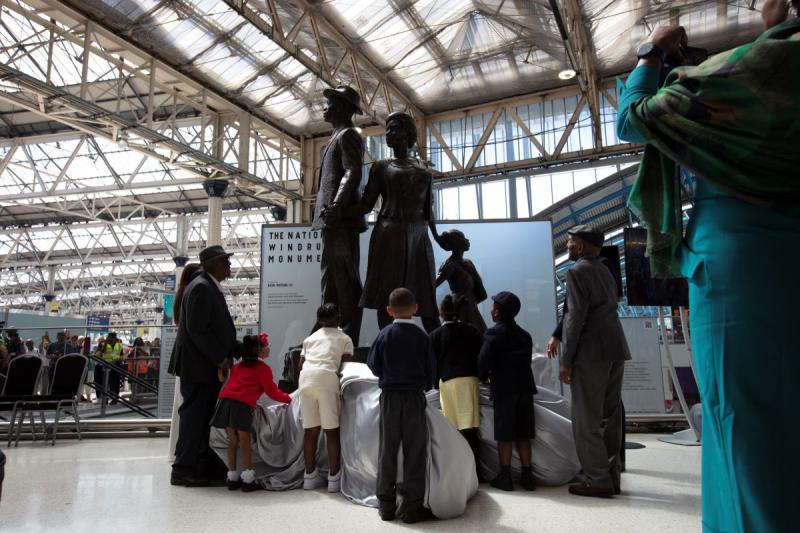
Film still from Gut Feelings Meri Jaan (2021) by Jasleen Kaur, co-created with Rochdale residents and produced by UP Projects in partnership with Touchstones, Rochdale
Can creative practice catalyse policy change?
UP Projects aims to combine artistic excellence with social value. But, asks Emma Underhill, can it also influence policy on the important issues of the day?
UP Projects is the UK's leading public art organisation specialising in socially engaged practice and community engagement. I founded the organisation in 2002 and over the past two decades we have worked with over a hundred artists to realise ambitious projects in public contexts.
At the beginning, my goal was to bring world class art out of galleries and into the public realm. But over the years this has evolved to involving communities directly in the process of creating public artworks. Our work aims to combine world class artistic excellence with a genuine, hyperlocal community relevance and social value.
Projects I’m most proud of such as the Newham Trackside Wall by Dame Sonia Boyce or Gut Feelings Meri Jaan by Jasleen Kaur have, I believe, gone a long way towards achieving this holy grail.
Lines of enquiry
In recent years, UP Projects’ role has expanded beyond curating and commissioning public art and developing public art strategies to sharing our learning and offering development opportunities to the sector.
Our learning and development programme Constellations has been running since 2017 and offers workshops, seminars and online Assemblies that are centred around a series of lines of enquiry that we feel are most pressing for socially engaged public art practice.
For us, socially engaged public art means work that happens at the intersection of contemporary art, social practice and the public realm. Interaction, collaboration or participation with people is always at the centre.
The social practice element relates to the social benefit of a project which can manifest in many ways such as a positive effect on the mental health or wellbeing of community participants, or empowering young people to develop new skills. It may engender a change in mindset towards environmental responsibility or encourage those people who hold power to distribute it more equitably.
We believe the process of collaboration is as important as the final artwork and in some cases the community participation or act of collaboration becomes the work itself.
Legacy planning
One of the challenges we often grapple with is the limited sphere of influence these works can realistically achieve. To genuinely bring about positive social change, artists need time to build relationships and trust with the people they are working with and the work needs to be highly nuanced and specific to that particular community context.
It is vital that legacy planning and resource is baked into project plans and budgets to enable opportunities that have come up for the community participants during the project to continue. For example, if a project is bringing a group of people together to create a community asset such as a garden, considerations around how the group and the garden will continue beyond the lifespan and funding of the project is essential.
However, even with robust legacy planning it is very difficult for significant social changes to take effect if those that hold the power – be they politicians, landlords, landowners or corporations – do not support or facilitate the change.
 UP Projects' The National Windrush Monument by Basil Watson at London's Waterloo Station. Photo: Steve Russel Studios
UP Projects' The National Windrush Monument by Basil Watson at London's Waterloo Station. Photo: Steve Russel Studios
Influencing policy
So we’ve been thinking about how we, as public art practitioners, can not only work towards catalysing positive social change within the community contexts we work in, but also influence policy beyond the scope of public art projects.
Building on this premise, our upcoming three online Constellations Assemblies will reflect on the role that art in the public realm can play in supporting advocacy, campaigning and ultimately changing policy, as well as acknowledging the challenges and obstacles that need to be tackled along the way.
The events will offer audiences the chance to hear from leading artists, both international and UK-based, whose respective practices encompass activism, climate justice and empowering children through creative education. UP Projects are currently developing projects that address each of these areas, so these events are a fantastic opportunity for us to learn too.
Constellations Assemblies
The first event will kick off with the inspirational American artist Dread Scott, in conversation with curator Zoé Whitley who sits on the Greater London Authority’s Commission for Diversity in the Public Realm and has recently been involved in the artist selection for London’s forthcoming Memorial to Victims of Transatlantic Slavery.
Scott’s work taps directly into the roots of racial injustice and he will be speaking primarily about his pioneering work Slave Rebellion Reenactment, a community engaged project in New Orleans that saw hundreds of reenactors bring the largest rebellion of enslaved people in US history back to life.
He will be discussing the role his work plays in harnessing political energy to dismantle power structures and demanding fresh portrayals of buried histories.
The second Constellations Assembly in the series titled Pushing for Culture-Based Climate Action will explore how artists negotiate the challenges of making public work that is centred on environmental themes. Alison Tickell, CEO of Julie’s Bicycle, the leading organisation that mobilises the arts sector to take action on the climate crisis, will discuss with a group of artists their guiding values for climate action and how they navigate compromises throughout the artwork production process.
The series will close with Art in Schools; Getting Culture back on the Agenda. With cultural education being downgraded in schools and no longer prioritised in the school curriculum, we have invited Steve Moffitt, Chief Executive of A New Direction, along with artists Abbas Zahedi and Sahra Hersi to discuss what best practice could look like when developing artist led projects with schools, and how can such projects advocate for policy change at a government level.
These events are open to anyone interested in public art and social practice and I am excited to hear how the discussions unfold. I have absolutely no doubt about the power of public art to effect positive social change but I’m really interested in exploring how we can also influence policy as, without that, nothing really changes in the long run.
Emma Underhill is Founder and Artistic Director of UP Projects.
![]() upprojects.com/projects/assemblies-2024
upprojects.com/projects/assemblies-2024
![]() @upprojects | @EMMAUNDERHILL
@upprojects | @EMMAUNDERHILL
![]() emmaunderhill/
emmaunderhill/
Join the Discussion
You must be logged in to post a comment.